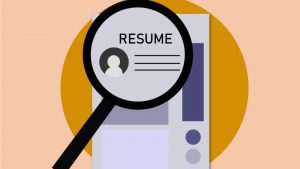Interviews are an essential part of working life. A great interview can springboard you into landing your dream role.
Presenting a positive impression of yourself during interviews is the most important part of the application process. You may look great on paper but this is usually not enough to convince an employer to take you on board. If you fail to achieve this, you may lose out to someone that did…and perhaps, to someone less qualified.

Be in a good frame of mind

An interview is your time to shine, so you want to make sure you are your most sparkly! You need to feel prepared, be calm, well rested and energised in order to present the best version of yourself. Eating well, staying hydrated and getting a good night’s sleep are very important. Try to avoid stressful situations so that you can focus on your task to hand – undertaking your preparation and getting through the interview with confidence!
Dress appropriately

First impressions are everything. If hired, you would be a representative of the organisation and the way you dress at your interview may impact your interviewer’s opinion of your suitability – even if subconsciously. It may be dress-down day at your workplace, but arriving in smart business attire is always the safest option, unless you have been told otherwise.
Research the company

You may be the most experienced candidate for a role, but if you have not researched the company this will suggest a lack of interest, and could put you at a disadvantage when it comes to securing the job.
Remember that in addition to searching for a skilled candidate, organisations also want someone aligned to their company structure, working environment, culture and values. If you don’t know why you want to work for that company, how can they be confident that you would be the best fit?
Be confident about your CV and how it relates to the job description

Review the job description in detail and draw multiple parallels between the essential / desirable criteria and your own experience. Discuss a broad range of your experience, including but not relying exclusively on your current role. Include examples of worthwhile, skill-building activities such as volunteering. Variety is key!
Prepare some potential responses

Interviews questions will vary company to company, however there will often be similarities. You may be asked about your suitability, your strengths and weaknesses, what you know about the company, what you want out of the role, and why you are leaving your current situation. Prepare solid responses to these in case they come up – without preparation it can be easy to provide loose and unimpressive answers.
Prepare your answers using the S.T.A.R. Methodology:
- Situation
- Task
- Action
- Result
Be early

Giving yourself 10-15 minutes to relax prior to your interview is always a good idea. You want to appear calm and in control of the situation, and this is difficult to achieve if you are flustered! Take this time to regain your thoughts, consider what you want to learn about the role / organisation and what you want to highlight about yourself. Breathe!
Stow away your belongings and remove distractions

When you enter the room, you should ensure all potential distractions are removed from the situation. Turn off your phone (including silent-vibrate mode!). Keep all belongings in a non-visible place and never on the table. Avoid bringing anything unnecessary with you as this could appear unprofessional.
Be engaged in the conversation

Your body language is important throughout your interview. It reveals your confidence, along with your interpersonal and communication skills. Your body language will allow the interviewer to gauge insight into what you would be like as an employee or teammate.
Ask REAL questions

When researching the company, prepare a set of genuine questions you want to ask. An interview is as much about you finding out about the company / role as it is about them finding out about you. You need to be confident that this is the right working environment for you.
Reflect!

After the interview, always take the time to reflect on the research you have done and the insight you gained through the discussion. Consider whether you want the role, if offered. Consider where this position would sit within your wider career goals and assess whether it would be an appropriate move.
Follow the tips and get selected in interviews!












